Many of my readers have recently opined or asked questions on electric cars in its many forms. From hybrid electric to fully 100% electrics, the inquiries keep coming when it comes to non-nostalgia questions. Both of these reader groups are at completely different ends of my column’s subject spectrum, but I’ll carry on nonetheless.
Hopefully for the bunch of you who have inquired (and thanks very much for your letters and emails) I’m going to state my views in hopefully understandable verse so everyone, from 13 year-olds to us senior citizen baby boomers will understand and contemplate on.
First, why would any business involved in car production put all of its apples in one basket knowing full well these 100% electric vehicles still don’t have “re-fueling” stations in the numbers necessary to accommodate the public need?
Talk about putting the cart before the horse. Look at what’s been going on with General Motors, Ford and Volkswagen, where it seems like its company DNA will be near 100% electric they hope sooner than later. Most car companies are looking at completing the green energy needs by 2025 to 2030, which I feel is very impossible.
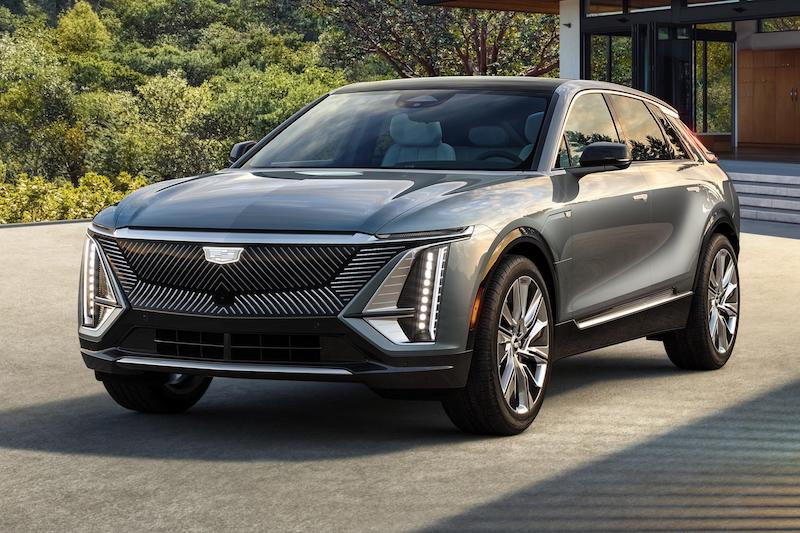
Cadillac’s all new and very first all-electric vehicle debuts this year. The Lyriq is a midsize SUV and will be priced competitively at about $63,000 for the entry model. (Cadillac)
Cadillac, still the only GM division that is mostly autonomous in design theory, keeps running and re-running its 2023 Lyriq electric car commercials on all the business oriented TV stations I watch. However, if you go to a Cadillac dealer, the odds that they have one yet on display are doubtful. Lyriq is the luxury brand’s first ever fully electric, midsize SUV weighing near 6,000 lbs. thanks to its heavy, 312-mile range lithium-ion battery. It’s a great looker and will start at around $63,000 in front drive dress, while AWD is planned for 2024.
Further, how can the marketing teams at these companies keep their faces from turning red when questioned about the sincerity in their forward thinking advertising pushes? Do the executives really feel most Americans will be able to fulfill the government mandates and or hopes of electric car ownership in the next five to 10 years? From what we see right now, to own a well-equipped electric car they better hope their wallets can handle in the $55,000 and up range. Tesla recently lowered its prices on entry level, excellent quality cars but we’re still talking in the upper $50K for the SUV model.
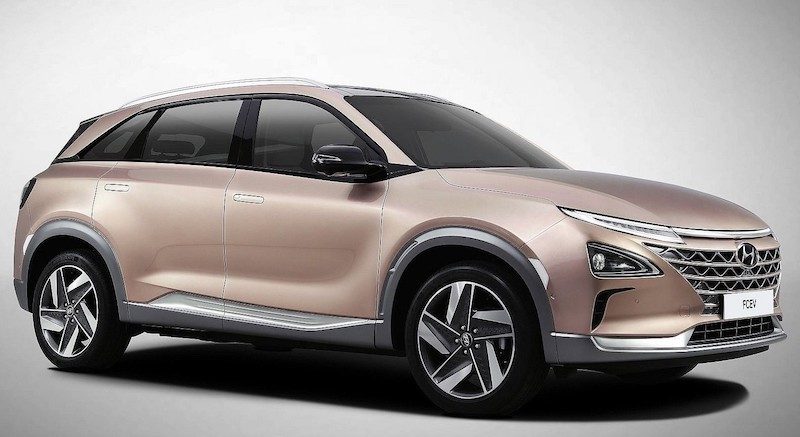
Although only available in California, the Honda Clarity hydrogen fuel cell entry has technology that could make a total electric car obsolete. Toyota, along with a co-op between Hyundai and Audi, is also working diligently on this technology, which refuels similar to a gas-powered car. (Honda)
Even further down the line, has anyone taken into consideration the market for used electric vehicles (if there will be one) and then disposal or recycling of the used up lithium batteries? Do we have any solid info on how long these batteries will last and the cost for replacement? We do have solid info on buying a new battery for your used electric car, and it starts at five figures from what I’ve seen.
At what point will the auto makers realize that even with the entire solar panel and windmill farm push, renewable energy accounts for just 3% of America’s needs? Additionally, when will someone with the power to really do something (they are called politicians and / or governors) realize that the current offshore windmill farm development in New Jersey is killing our whales and other marine life?
I’m no expert in water windmills, but when you see dead sea life washing up on the beach where the windmill work is taking place, most people can make the connection. And ending on these windmill farms, does the average American know the cost of these gigantic structures and the fact that they have a life of 15 years max with non-renewable fiberglass blades needing replacement? Has anyone looked into other turbines that don’t rely on a windmill design relying on fiberglass blades? Some of the blades have already fallen off under hurricane style duress.
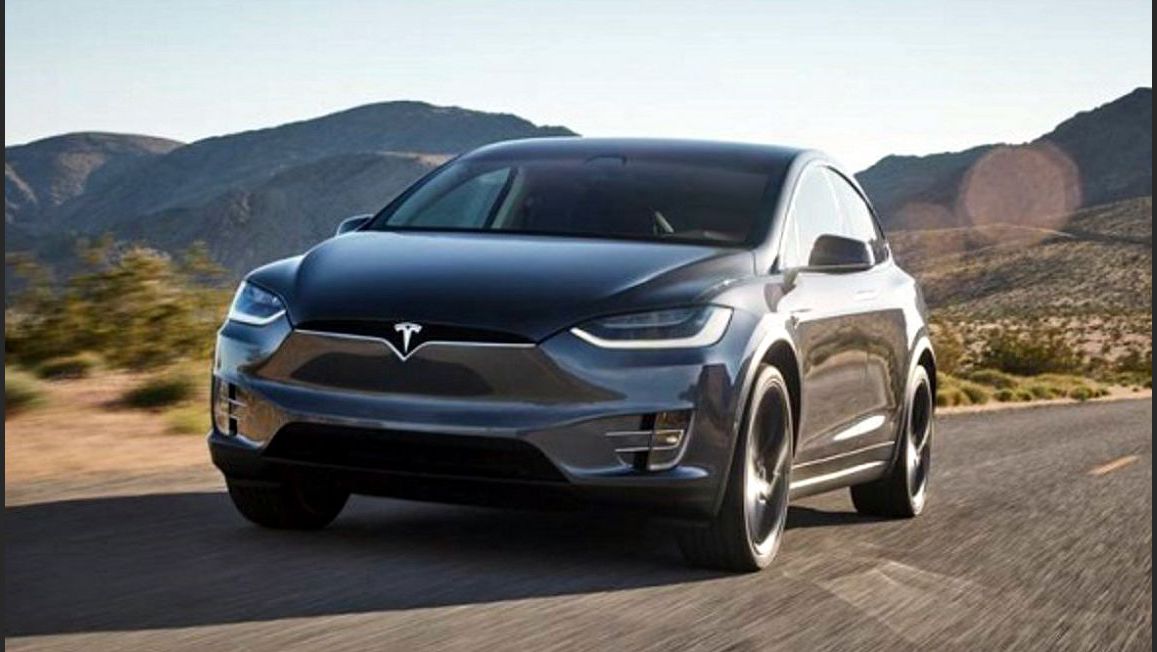
Of the 607,500 electric car units sold in the U.S. in 2021, Tesla accounted for 536,100 of them. That’s some very healthy numbers. (Tesla)
This brings me back to the car manufacturers.
If GM is correct and hopes to go full electric on all of its offerings, this company is either going to go bankrupt or be highly successful and knock Tesla off the top rung of electric car and truck total sales. Right now, GM electric car sales overall is about 10%, while Tesla is 100% (LOL, of course). Yet when talking market share, these numbers become a bit more eye opening and a more realistic number. For the sake of space, sales in the United States of electric plug-ins is 607,500 units at the end of 2021, of which Tesla accounted for 536,100 of those sales.
If ever there was a “number” that confirms the saying “last to the party,” it is every manufacturer of the non-Tesla electric plug-ins. And, helping push these “other” sales are the government “incentives” and tax advantages of $7,500. Thankfully, this incentive is back in the Tesla camp, as previously the government and Elon Musk weren’t on the best of speaking terms. This sales subsidy has been corrected within the last month, or so much to the chagrin of Tesla buyers that forked out near $10,000 more than they had to just four weeks ago.
I’ll give special mention to Toyota, which has yet to buy into the all-electric formula and still does not offer a 100% electric vehicle. It is both Honda with its Accord, and Toyota with the Prius that started the hybrid sales frenzy way back in 2000. Later, the first fully electric car in the Nissan Leaf joined the green fray. For the last 23 years this hybrid formula has worked great as it relied on both electric motors and a small internal combustion engines that kicked in when the battery needed its help. To this day the hybrid formula is, in my opinion, the best of all and has evolved into a winning combination that guarantees you will never be stuck on the side of the road or wait two hours for a recharge at a public charge station.
Finally (and I been saving this part of the story), what happens if Honda, Toyota and Hyundai / Audi / VW work on the hydrogen powered fuel cell cars break out as the new and better way to go forward?
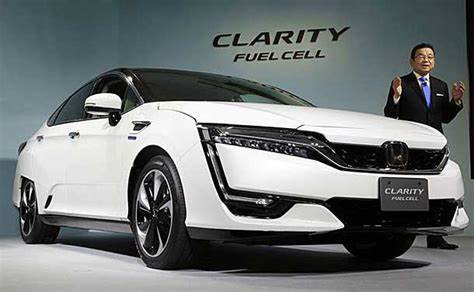
Here’s Hyundai’s 2023 hydrogen cell vehicle called the NEXO, which is on sale in Europe and parts of California. Hyundai is now working with Audi on a new generation of Hydrogen powered cars that will impact the American market if all goes well with many models to appear in the 2030 decade, or sooner. (Hyundai)
The Honda Clarity and Hyundai NEXO hydrogen entries are already on sale in California, but only 26 hydrogen refill stations have stunted the hydrogen car’s popularity and sales potential. The entry price is high, too, as it takes over $60K to get into a 2023 NEXO and hydrogen prices to refill are high, too. However, long term return-on-investment is better than all electric in my opinion.
Personally, I feel hydrogen fuel cell slow growth is also mostly because “everyone” is sold on the electric car green initiatives that up until now don’t include the hydrogen powered car; and that’s sad because a “hydro” (if I may) only requires the filling stations at everywhere USA, and won’t effect our old style power grids. The NEXO is powered and fueled by hydrogen with zero emissions and nothing coming out of the tailpipe but water. It is estimated to go 380-miles on a full tank.
In summary, I’m all in on the plug-in hybrid and the hydrogen cars. Full electric is loaded with “what ifs” and impacts our power grids negatively.
One thing I can promise. It’s going to be an interesting next 25 years for the car industry. Strap in and hold on.
(Greg Zyla is a syndicated auto columnist who welcomes questions or comments of auto nostalgia, collector cars or motorsports at greg@gregzyla.com or at 303 Roosevelt St., Sayre, Pa. 18840.)

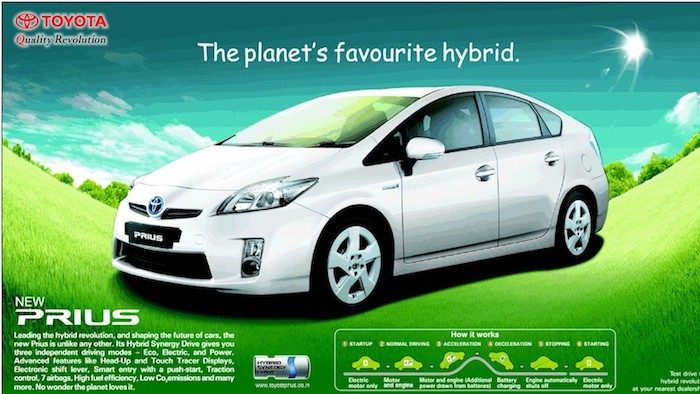

Be the first to comment on "Collector Car Corner – Which one should I buy?"